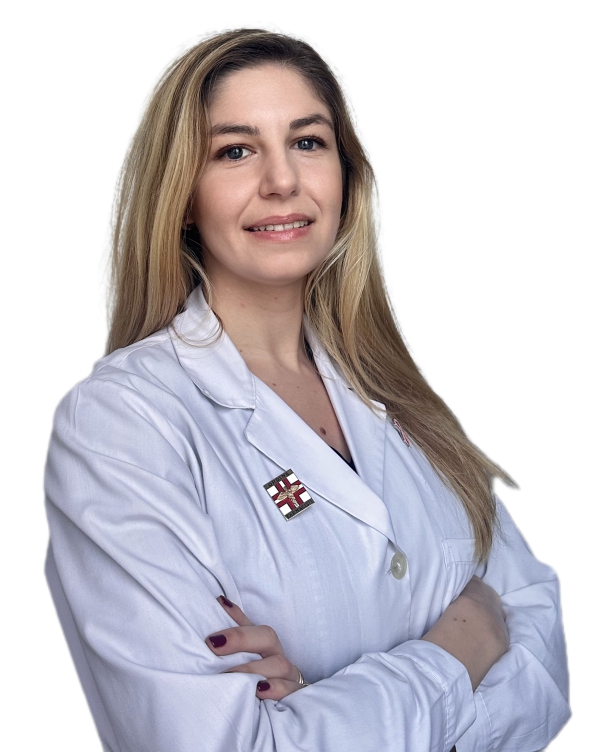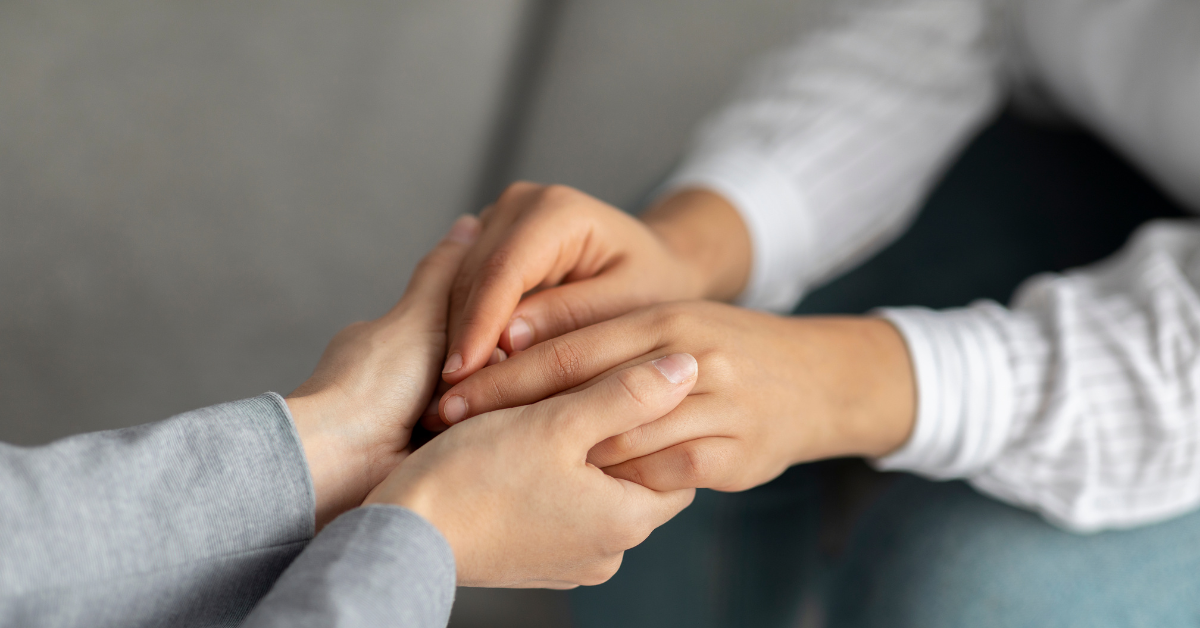Polycystic Ovary Syndrome (PCOS) brings with it a variety of more or less obvious symptoms, but what is still (unfortunately) too little talked about are the consequences on a woman's mental health and all the "hidden" difficulties she faces.
In this article, we'll tackle all those little-discussed areas that we at ArmoDonna know well. We hope this will make you feel a little more understood and less alone. We're here for you!
We’ll cover:
- Self-perception
- Sleep disturbances
- Desire for pregnancy
- Concerns about long-term health
- Anxiety and depression
- Eating disorders
- Sexual dysfunction
- Chronic fatigue
In a study published on PubMed in 2010 [1] and a subsequent one in 2023 [2], the psychological and emotional impact of PCOS on women was highlighted, as well as their increased tendency toward depression, anxiety, eating disorders, distorted body image, and sexual health issues.
-
Self-perception
The most immediate psychological consequence is undoubtedly related to our physical appearance. You look in the mirror, constantly bombarded by perfect and unattainable models (thanks to filters, Photoshop, and cosmetic surgery), and you notice all your flaws. You wash your face and go through countless steps in your beauty routine, yet acne and inflammation persist.
And what about those extra pounds you can't shed? Despite dieting and hours at the gym? These too can be symptoms of PCOS: aesthetic consequences, but they have much deeper implications!
They profoundly affect how we see ourselves and our often overly harsh judgments of our bodies and appearance. The important thing we should focus on is feeling good about ourselves and accepting ourselves with the wonderful flaws that make us unique. Taking care of ourselves is an act of love we perform every day, but it shouldn't translate into overly harsh criticism. All these skin conditions caused by hyperandrogenism (excess male hormones) and insulin resistance can be treated with cosmetic and systemic therapies, depending on their severity. A well-balanced nutritional supplement is an excellent ally, if used chronically, in supporting the physical and psychological repercussions.
-
Sleep disturbances
Lack of sleep is one of the primary causes of depression, which in turn leads to poor and short-term sleep. Fatigue related to hormonal imbalance and insulin resistance is compounded by fatigue caused by sleep disruptions and therefore the sleep-wake cycle. This leads to further hormonal imbalances and a state of constant irritability. Sleep deprivation, also a consequence of certain medications, is the primary cause of discontinuation of medication adherence.
This deficit also affects our metabolism and our ability to recover, thus impacting our perception of our body and worsening depression. Think about when we stay up late but have to wake up early. We don't sleep enough, and the next day we suffer from sleep deprivation, both psychologically and physically. Imagine this same situation recurring every day for months. Our already exhausted body is put to the test, and our ability to react and take care of ourselves is also affected. Here’s a small tip: If you can, as soon as you wake up, when you open the window to freshen up the room, take a moment to breathe slowly at the window. The light will trigger the release of a small but crucial dose of cortisol that will help you wake up, without resorting to coffee as soon as you wake up. Try waiting at least an hour before drinking your first coffee and try reducing, eliminating, or replacing it. After the first few days, you'll immediately notice the benefits to your sleep, and much more!
Desire for pregnancy
Let’s be honest: no woman ever feels 100% ready to have a child, and all carry, until the very end, the fear of not being up to the task. At some point, however, something clicks inside us, and you realize that you want to try.
When, after the typical 28 days (approximately), your period arrives, a sense of inadequacy begins. You feel like you’ve let yourself down, your partner down, and even society. According to studies published on the Italian Ministry of Health website, PCOS is the leading cause of infertility in women seeking pregnancy. You wanted it so much, but you’re not pregnant. On top of the stress caused by your own insecurities and challenges comes the uncertainty about whether you’ll be able to start a family. Inside you grows the fear that you may never have a child, and then you start obsessively doing, or avoiding, all the things you’ve read in brochures, books, online, or heard from your mother, friends, or neighbors, thinking they might reduce, or increase, your chances of conceiving.
A woman is left feeling disoriented when she encounters PCOS as an obstacle to her desire to become a mother. Guidelines for many of the skin-related symptoms often recommend contraceptive pills as the first line of treatment. At that point, the choice falls between trying to have a child or taking care of your body to feel better about yourself. Many women previously didn’t even know what PCOS was, and suddenly they have to face it every day. For years, they were told they didn’t exercise enough, ate poorly, that acne is normal in adolescence, or that irregular period pain is normal. But it isn’t normal. On one hand, many things become clearer; on the other, a new challenge begins. Studies show that insulin resistance reduces fertility. It is important to follow the advice of a nutritionist or dietitian to control blood sugar spikes and glucose absorption.
A French study published in 2020 [3] reports that, as a consequence of chronic anovulation (when menstruation occurs without ovulation or without the presence of a corpus luteum) or oligovulation (when ovulation is infrequent or irregular), 50% of women with PCOS experience primary infertility (never having been pregnant) and 25% experience secondary infertility (having had a previous pregnancy).
With ArmoDonna, we wanted to create significant support—a product that makes things easier!Concerns about long-term health
Many studies have shown that PCOS is a risk factor for cardiovascular diseases and more. Hypertension, high cholesterol, and diabetes are just some of the conditions that a woman with polycystic ovary syndrome is more likely to develop over her lifetime. Even certain cancers list PCOS among their predisposing factors. This awareness can create tension and concern about the potential development of health issues. Worries extend not only to one’s own health but also to the well-being of loved ones. There is also the fear of becoming a burden.
Anxiety and depression
Lack of sleep, not seeing our efforts rewarded, struggling to conceive, and worries about the future often lead us to live in a constant state of anxiety and sometimes depression. In this context, taking a moment to relax through meditation or physical activity, preferably outdoors, can help lower cortisol levels and stimulate the so-called “happiness hormone.”
A woman’s well-being and self-esteem are undermined. The most common symptoms associated with anxiety and depression in women with polycystic ovary syndrome are overweight and, more broadly, body image concerns (acne, hirsutism, hair loss) as well as issues in the sexual sphere. Failing to accept one’s body can lead to social isolation and persistent anger toward oneself and others. In these cases, the support of a psychologist or psychotherapist is essential to regain happiness and emotional balance, which can also lead to physical improvement.
Eating disorders
Those who suffer from conditions like PCOS have often gone through drastic diets and severe restrictions to lose excess weight, pushing their bodies to the limit. Being so harsh on oneself can lead to an eating disorder. In these women, eating disorders are caused not only by psychological factors but also by hormonal and metabolic imbalances. Eating behavior disorders such as binge-eating (where a person feels compelled to eat large amounts of food in a short time, regardless of hunger), night eating syndrome, bulimia, or anorexia nervosa can occur frequently.The hyperandrogenism that often characterizes women with polycystic ovary syndrome can lead to menstrual irregularities, which significantly impact hunger and the relationship with food. Insulin resistance is also a common feature of this condition in many women. Improper glucose absorption by the body leads to a constant craving for sugar, creating an escalating loop.
It is essential to rely on professionals who can help balance the right foods throughout the day according to your needs and characteristics. Food can become a pleasure, and you will have one less worry.
All the disorders discussed so far can benefit from proper supplementation, and we at ArmoDonna are here for that! But also through a balanced diet and a structured, personalized exercise plan.
If you want to explore the impact of nutrition and training on Polycystic Ovary Syndrome, you can find more information in the article
Polycystic Ovary Syndrome: Nutrition and Training to Manage the Syndrome.
Psychosexual Dysfunction
Anxiety, depression, insecurity, and pain all affect a woman’s psyche, making her feel inadequate and less attractive, with repercussions in her sexual life. Many women feel embarrassed to be seen naked by their partner and fear they are not desirable. You are all beautiful!
These issues can also arise from other factors. Many women report having a psychological block regarding sex, stemming from pain during intercourse or difficulty achieving orgasm.
Hormonal imbalances associated with PCOS can also lead to reduced sexual desire or loss of libido. Becoming aware of this situation can create further feelings of discomfort and inadequacy. Even in these cases, seeking support from professionals and discussing it with your partner are the right steps to take. You are not alone.
Chronic fatigue
If you suffer from PCOS, you know exactly what I mean. You wake up tired despite having slept for hours (if you even managed to sleep), and throughout the day, you feel like you’re never at 100%. What causes this fatigue? It’s certainly due to insulin resistance (there it is again, always present), sleep disturbances, hormonal imbalance, anxiety, and depression.
We’ve addressed the main challenges that a woman faces daily, consciously or unconsciously, when living with polycystic ovary syndrome. The picture that emerges is certainly complex and requires the support and collaboration of various healthcare professionals. As we’ve seen, there are many aspects, but in one way or another, they are all interconnected.
Finally, remember one fundamental thing: you are not alone. There are so many of us, and we support one another! There are still too many taboos surrounding emotional health, but no one should ever feel ashamed to ask for help. Accepting and understanding that you need support is one of the most beautiful gifts you can give yourself!
If you want to explore the causes and symptoms of Polycystic Ovary Syndrome, you can find more information in the article
Polycystic Ovary Syndrome (PCOS): Common Symptoms and How to Recognize Them Early.
We all know that PCOS cannot be cured. We have to learn to live with it. Fortunately, science is on our side. With the right support, proper supplementation, and the right dietary and lifestyle adjustments, it is possible to alleviate and manage its symptoms, improving not only physical health but also psychological well-being.
From this desire to help as many women as possible, and from our personal involvement, we decided to create a product that is not just another supplement with the same ingredients repeated over and over, but a 100% made-in-Italy, complete supplement that makes us feel beautiful and well!
Share this article with the women you care about! You might help them more than you think!
Let’s grow this community and support each other.With love,
Dr. Elena TorgheleThe information and data contained in this article are for informational and educational purposes only and do not replace the advice or diagnosis of a doctor or specialist.


